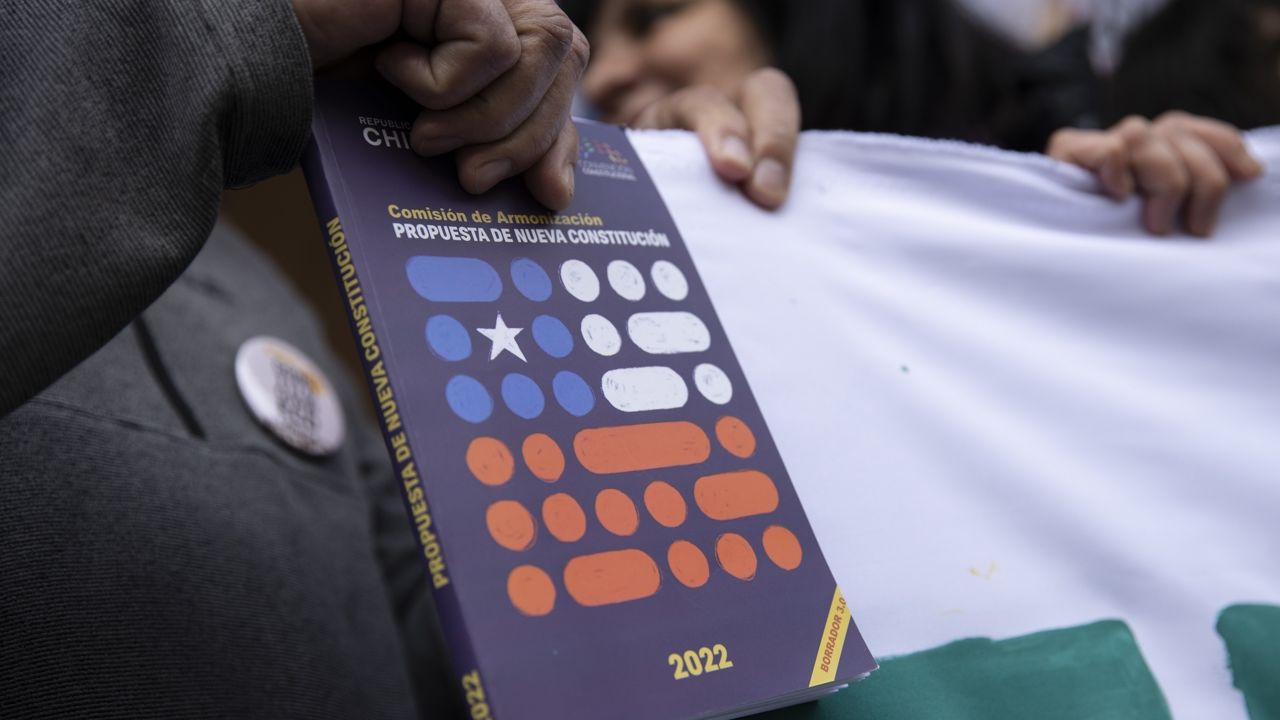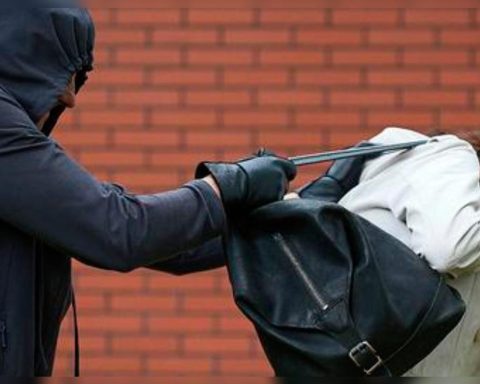What three years ago seemed like a harmless protest by Chilean schoolchildren against a rise in subway fares ended up becoming a national questioning of the model of society.
Chili has been in a political adrenaline spiral since October 2019: in record time it has experienced a revolt for more social rights, a plebiscite on the current Constitution, the most polarized presidential elections in 30 years and the drafting of a new Magna Carta.
The last stop is next Sunday’s referendum, in which 15.1 million Chileans will decide whether to approve the proposal drawn up by a convention with gender parity – the first body of its kind in the world – or whether to maintain the current text, inherited from the dictatorship and neoliberal court.
“During the 30 years after the dictatorship there was a lot of stability, but everything faded. This tumultuous period has pushed people to think about the kind of society they want to live in”stated to Eph Kenneth Bunkerdirector of the pollster Tresquintos.
For John Paul Arayafrom the State University of O’Higgins, the seizure “it does not arise by spontaneous generation” and is explained by “a very elitist system that has not known how to respond to social demands”.
“In the first mandates of Bachelet and Piñera, the student protests were very important. In fact, part of the current government, including President Gabriel Boric, forged his career in the streets”pointed to Efe.
PLAZA ITALIA, THE EPICENTER
Symbolic border between the rich and poor neighborhoods of Santiago, the roundabout known as Plaza Italia will go down in history as the epicenter of the riots that left thirty people dead and accusations against the police for human rights violations.
Three years later, the vestiges of those months are present everywhere: abandoned buildings, aluminum armored shop windows and walls full of graffiti.
“The outbreak generated a situation of public disorder that has not been restored. We have continued with a kind of low intensity outbreak“, he assured Eph claudia heissof the University of Chile.
Peter Velasco (47) works in a nearby cafeteria that was closed for months due to the protests and the pandemic, and he is clear that he will not approve the new Constitution.
“I just want us to get out of this and go back to what we were. We weren’t that bad”he told Efe.
Valentina Bellya 23-year-old university student who has gone to the roundabout every Friday since 2019 to continue demanding a free education, thinks differently: “We are one step away from achieving a better country“, he stressed to Efe.
In November 2019, after a night of absolute disorder, the political forces reached an agreement – in which the President himself played a relevant role. borik when he was an opposition deputy Government of Sebastian Pinera (2018-2022)— to call a plebiscite on the Constitution.
more than 78% of Chileans it was inclined to change the current text and decided in October 2021 that the body in charge of drafting the new one would be a convention of 155 members elected only for that work.
Heiss explained that the constitutional malaise has dragged on since 1990, “when the transition was inaugurated with the Pinochet Constitution”, which generated “a feeling of incomplete democracy” and that “people associate problems with institutional norms.”
UNCERTAIN OUTCOME
Despite the initial enthusiasm, the convention was losing adherents due to internal friction and several scandals that affected a list of constituents linked to the outbreak.
The latest polls revealed that, with a difference of more than 10 points, the option of rejecting the new text, which declares Chili a Rule of Law Y enshrines fundamental rights.
Experts point out, however, that the result is very open because this time the vote is compulsory and there is more than 50% of the electorate that has not voted since 2012, when suffrage became voluntary.
For Bunker, to the process “it played against the ambition of the convention of wanting to regulate too many aspects”.
“September 5 may be even more important than September 4 because the process will continue”he added.
The multinational nature of Conditionthe justice system or the elimination of Senate These are some of the issues included in the text that generate the most controversy, although there is an agreement between the left-wing forces to modify it in the event that the “I approve.”
“Any constitutional project is going to leave people with a feeling of bitterness because behind it there are ideological disputes over the different visions of society or the way power is distributed”expressed for his part to Eph Raul Burgos, of the Catholic University of Valparaiso.
The important thing, he added, “is that said dispute conforms to an essential rule in democracy: knowing how to win and knowing how to lose.”
EFE


















